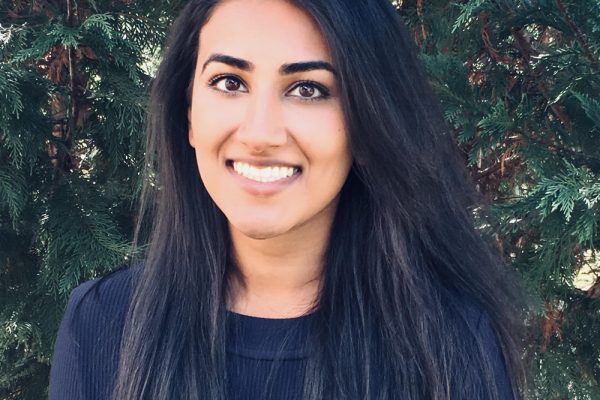Maya Reddy ’21L Works Remotely for Women Enabled International Reddy's summer internship allowed her to apply her interest in international development to a new area, examining legal issues for women with disabilities.
Maya Reddy is a third-year law student from Bristow, Virginia. She graduated from Virginia Tech in 2016 with a degree in Political Science. At W&L Law, she is Co-President of the Public Interest Law Students Association and serves as a Senior Articles Editor for the Journal of Civil Rights and Social Justice.
This summer, Maya Reddy ’21 worked remotely for Women Enabled International (WEI), an organization that is based out of a Washington D.C. WEI aims to strengthen international human rights standards for women and people with disabilities, calling attention to issues like gender-based violence, sexual and reproductive health and rights, stigma and stereotyping and more.
Reddy said that even though the pandemic affected her internship greatly—causing her work to go completely remote—she still had opportunities to engage with both non-governmental organizations and women with disabilities abroad via Zoom calls.
The WEI internship is in line with the values and goals she developed prior to law school.
“Coming into law school, I planned to pursue a career in international development and legal advocacy,” she explained. Reddy stuck with that ambition by pursing this internship, and it allowed her to fill in some previously unstudied gaps within the international development and legal advocacy concentration.
She discovered the job through last year’s Equal Justice Works career fair, a large Washington D.C. event that connects law students with public interest employers. After submitting an application prior to the fair, Reddy was selected for an interview slot with the founder of the organization and a previous WEI intern.
“I have never worked on disability rights issues,” she explained, “and [I] wanted to learn more about advocacy in that area.”
As an intern, Reddy researched the impact of COVID-19 on women and people with disabilities. She identified how global healthcare “rationing policies”—the allocation of scarce resources to some individuals rather than others—can discriminate against people with disabilities, which in turn violates certain human rights treaties and country-specific domestic laws.
Reddy also spent time researching access to various health services for women with disabilities in Fiji.
“WEI is currently conducting interviews with NGOs in Fiji to prepare a ‘Needs Assessment,’ which will identify challenges for women with disabilities to obtain sexual and reproductive health and gender-based violence services,” she said.
The class that helped Reddy most during this internship was Transnational Law, which she took as a 1L. In the class, she was exposed to international bodies of law concerning human and civil rights, and she practiced analyzing the domestic legal regimes of various countries.
Reddy said that she particularly valued working alongside the people at WEI, who are dedicated and passionate about human rights and access-to-justice issues.
 Maya Reddy
Maya Reddy
You must be logged in to post a comment.